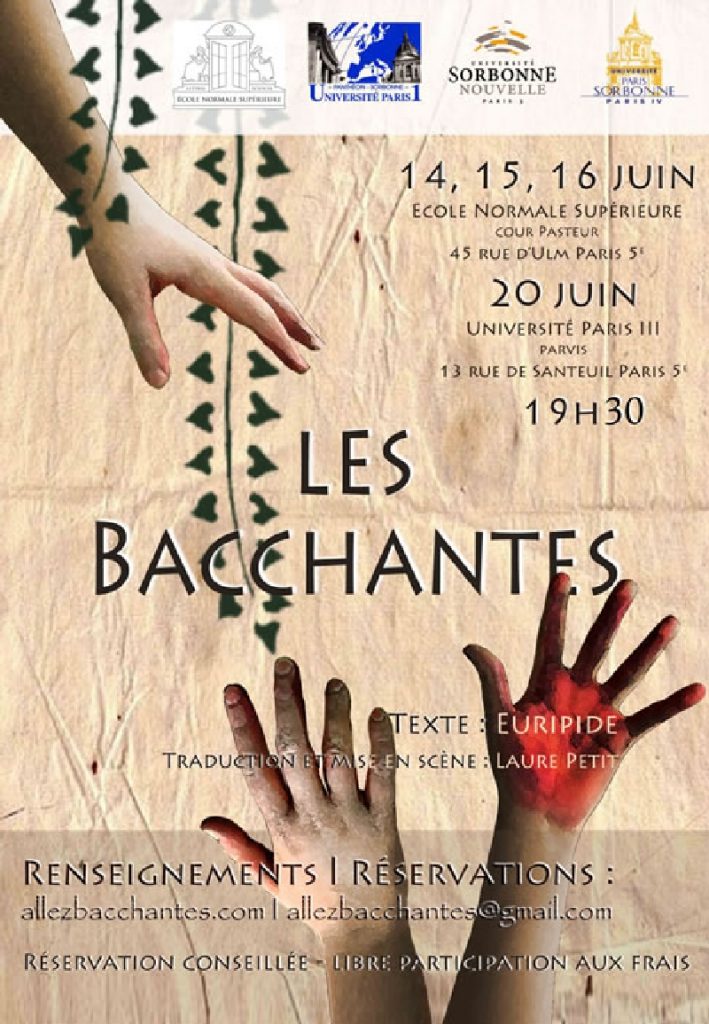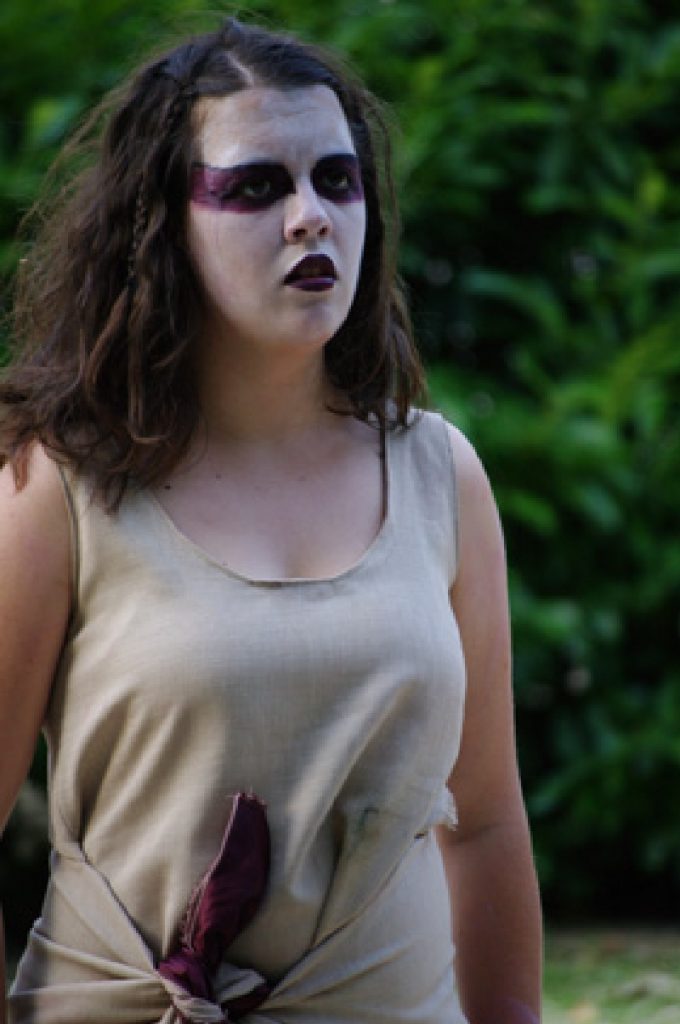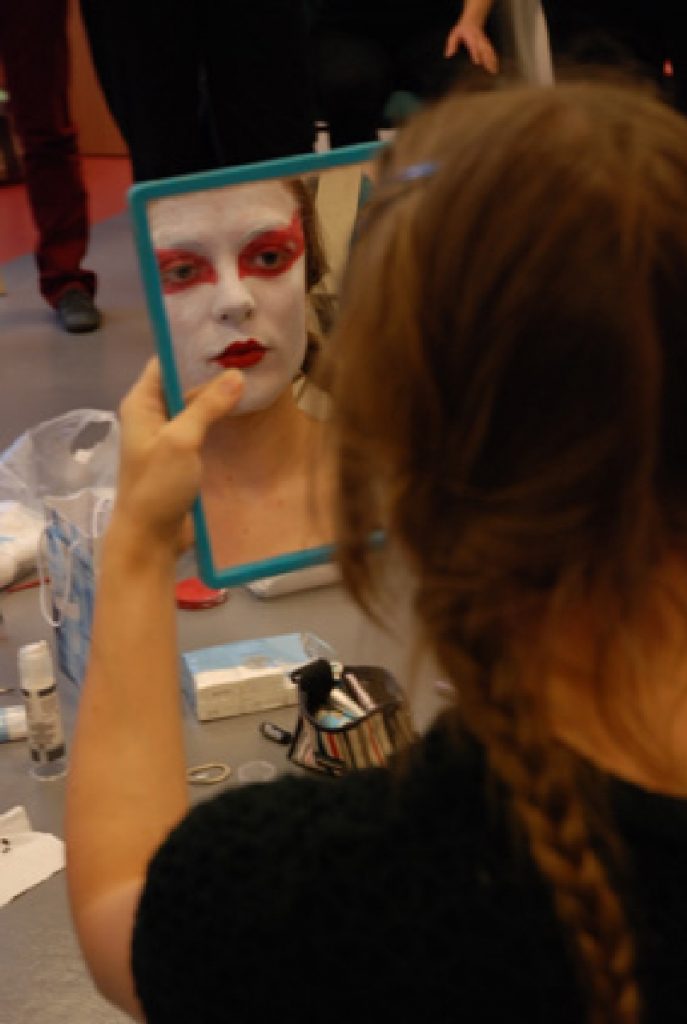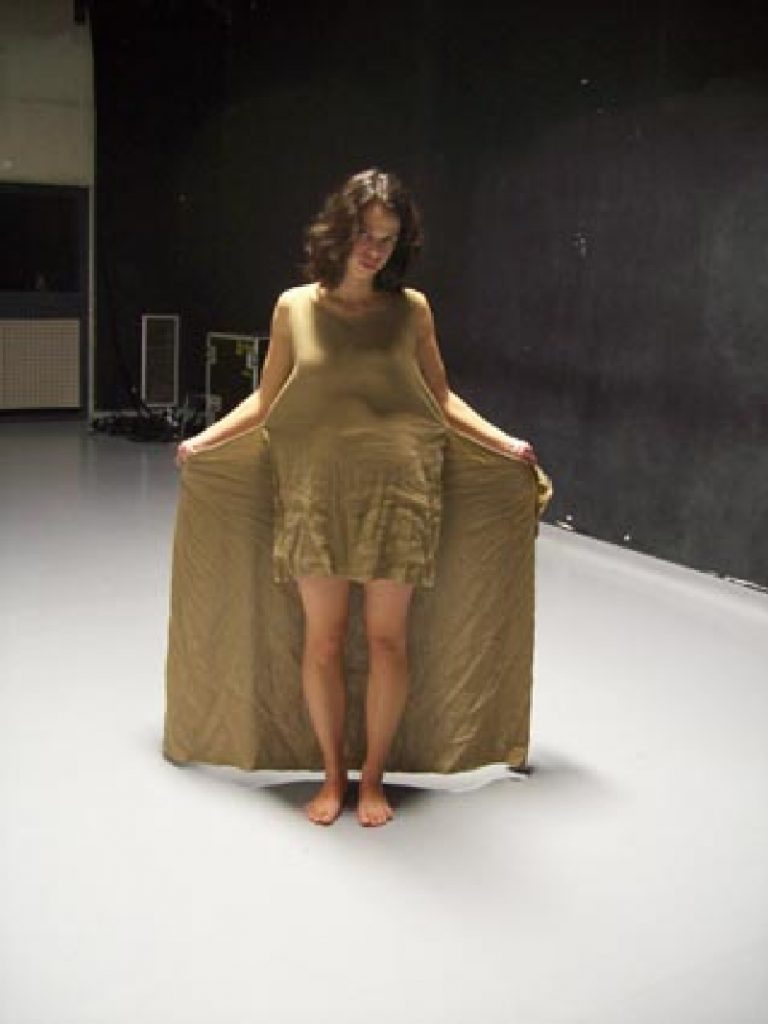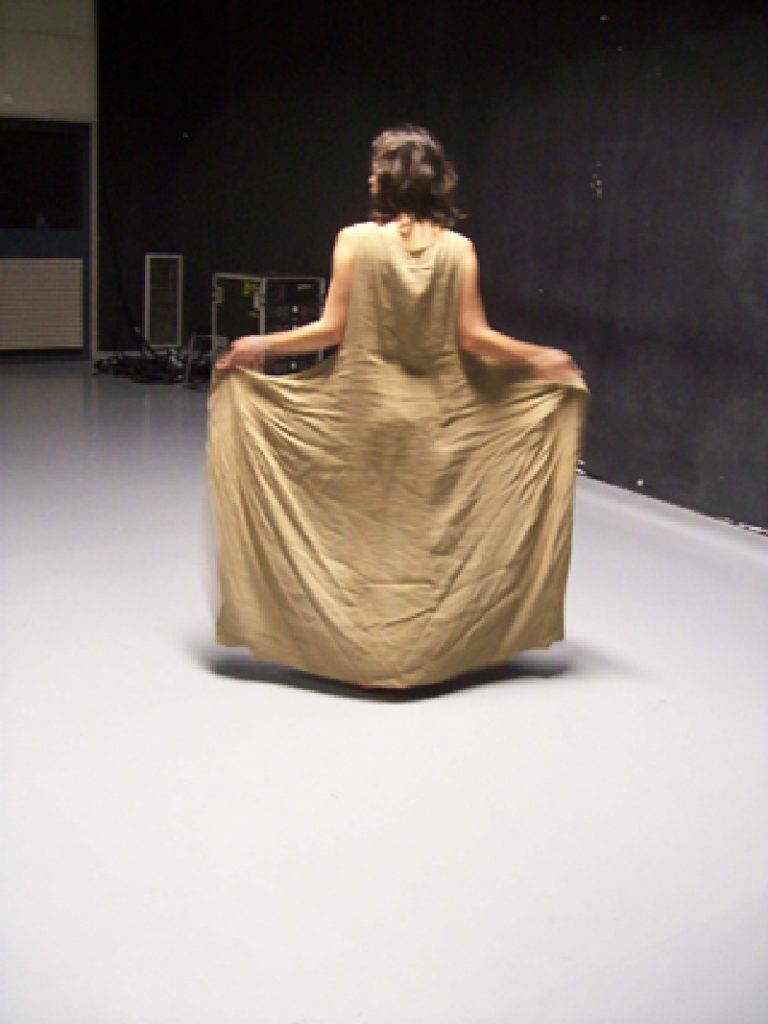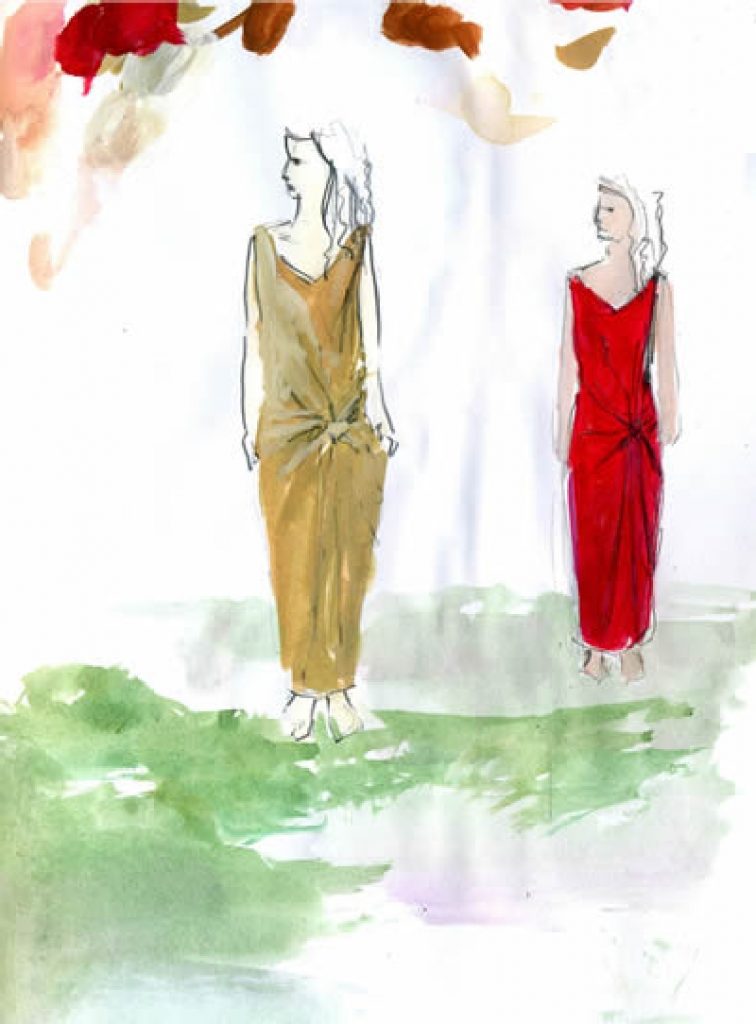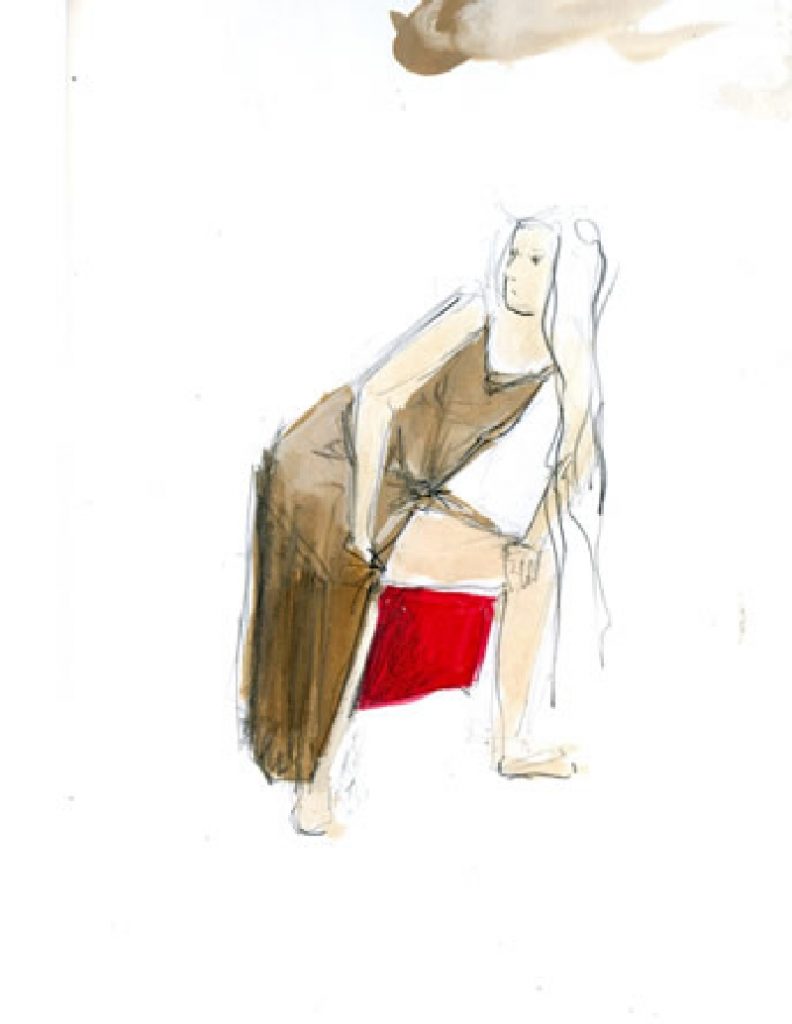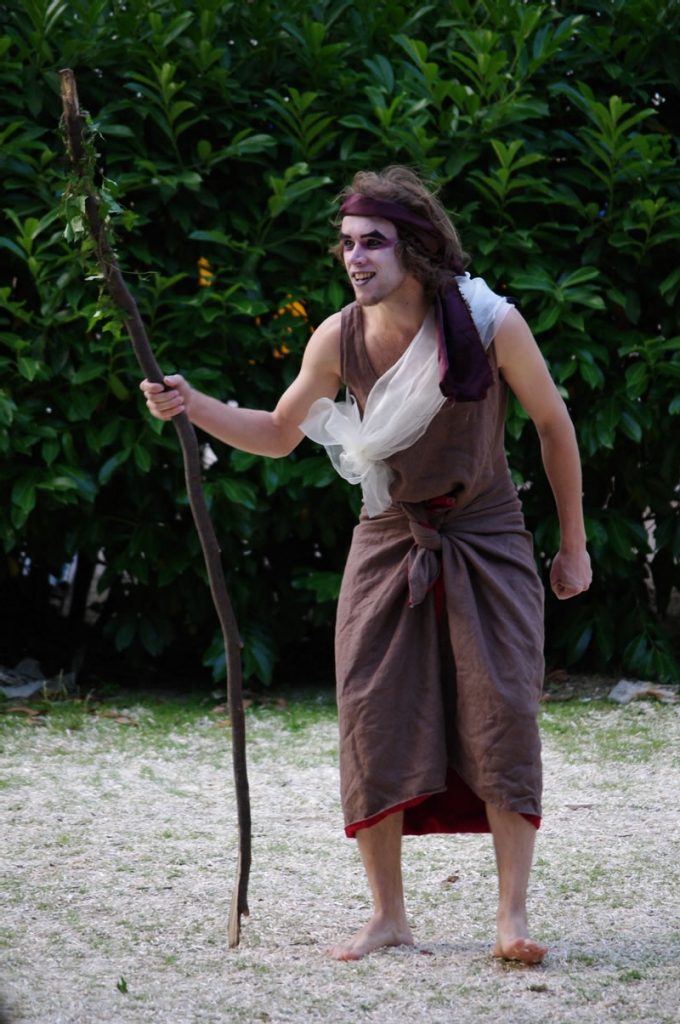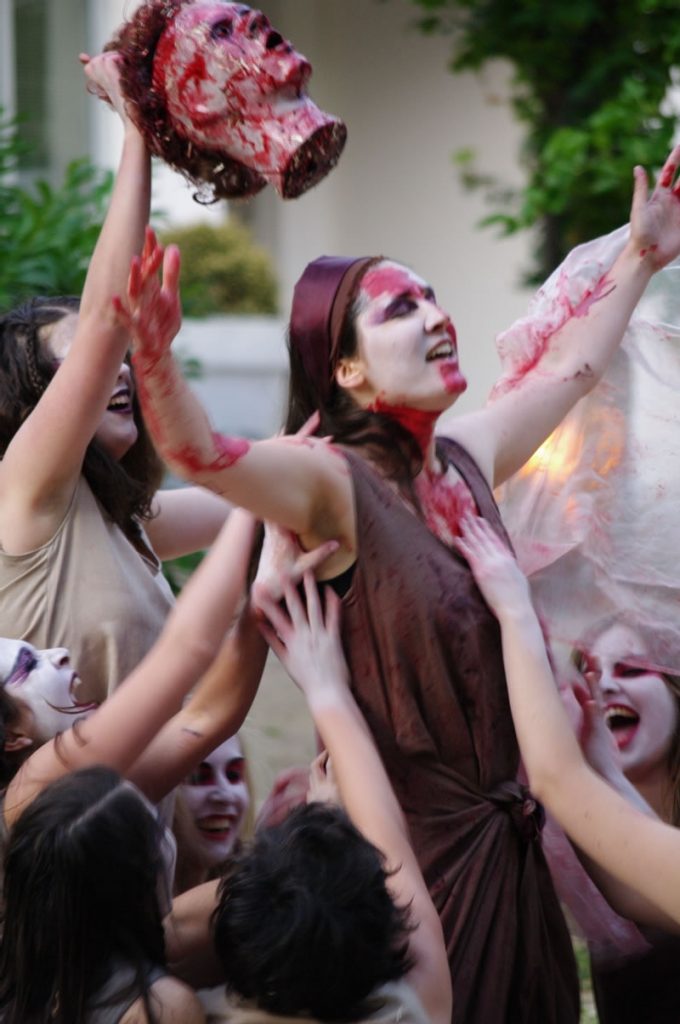DEM201294318
Laura Petit
Abstract
La messa in scena del coro antico sulla scena di oggi è il problema di base riscontrato dai registi. Attraverso la ricerca pratica che conduco dal 2008, nutrita dalla mia riflessione di ellenista e concretizzata nel 2011 dalla messa in scena delle Baccanti, propongo una possibile soluzione. La prospettiva dello studio che qui presento è drammaturgica nel doppio senso odierno della parola “drammaturgia”: la drammaturgia di Euripide e la drammaturgia esterna all’opera, quella del regista. La mia riflessione si basa sulla lettura del testo su cui è stata concepita la realizzazione scenica del coro. Viene analizzata la caratterizzazione del coro delle Baccanti in quanto personaggio e il suo ruolo drammaturgico nell’azione creata da Euripide. Parallelamente, si esplorano le vie della creazione teatrale e si vede come la scrittura teatrale può generare una scrittura scenica. L’importanza data al coro nella messa in scena e le scelte che hanno condotto alla sua realizzazione scenica sono sostenute da una specifica ipotesi di lettura: il coro come presenza musicale, cantante e coreografica rappresenta – non si usa a caso una parola della stessa radice – la presenza del dio.
The representation of the ancient chorus on present-day stages is the fundamental problem faced by all directors. I am currently trying to find solutions to this problem through applied research I have been carrying out since 2008. This stems from my training as a scholar of the ancient Greek world and it led to a staging of The Bacchae in 2011. The analysis considers drama in both of the contemporary acceptations of the word “dramaturgy”: on the one hand, Euripides’ dramaturgy, and on the other hand, the dramaturgy which is external to the play and is the work of the director. The study is rooted in the very letter of the text, from which the scenic realisation of the chorus was designed. It focuses on the characterisation of the chorus of the Bacchae and its dramatic role in the action conceived by Euripides: this is relevant both for the dramatic construction of the play and for its staging. The research also explores the theatrical creation process, by showing how playwriting can also engender scenic writing. The emphasis put on the chorus throughout the staging, and the choices that led to its scenic realisation, are grounded in the following interpretive hypothesis: the chorus as a musical, singing and dancing character points to the presence of god.
 Scarica l’articolo completo:
Scarica l’articolo completo:

